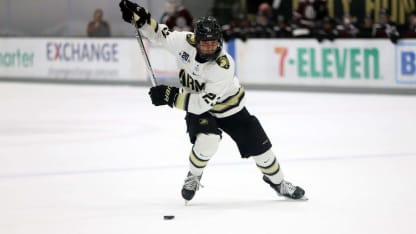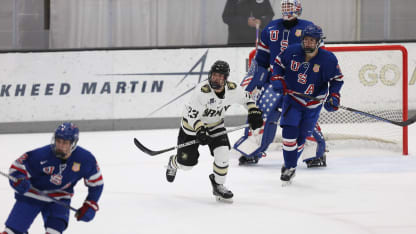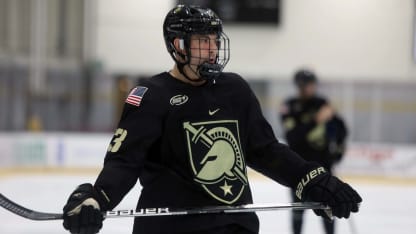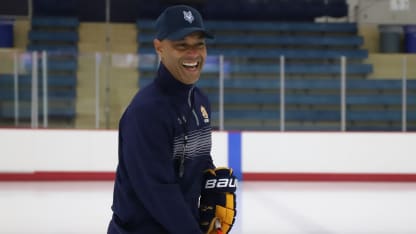William Douglas has been writing The Color of Hockey blog since 2012. Douglas joined NHL.com in 2019 and writes about people of color in the sport. Today, as part of NHL.com's celebration of Hispanic Heritage Month, he profiles Joey Baez, a forward at the United States Military Academy at West Point who was second in the Atlantic Hockey Association in goals last season and also tied for second in power-play goals throughout NCAA Division I men’s hockey.
Joey Baez idolized Vincent Lecavalier and Steven Stamkos.
“Those two are my favorites by far, growing up in Tampa, watching them on the Lightning,” Baez said. “Vinny Lecavalier really inspired me to be the kind of player I am today.”
Baez is making a name for himself as a forward for the United States Military Academy at West Point. The 23-year-old junior from Tampa finished second in the Atlantic Hockey Association in goals last season with 21 in 37 games behind Blake Bennett of American International (22), and became Army’s first 20-goal scorer since 2007-08.
He was third on Army in points (28) last season and was tied for second in power-play goals nationally (12) with University of Minnesota-Duluth forward Ben Steeves and David Silye, who was a Minnesota State University forward before he transferred to the University of Wisconsin this season.
“I try to be as offensive as possible,” Baez said. “I’ve always wanted to fill the role as a goal-scorer. I’ve worked with (Zach McKelvie), our [associate head] coach a lot trying to be a more defensive player, be reliable and dependable in the d-zone. I’m trying to work on being a more two-way forward. But, more specifically, I want to be a goal-scorer, I want to be a guy everyone can look up to and be a gametime player.”





















